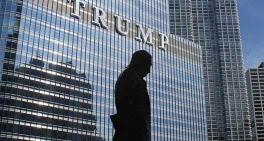Delay in Nevada gun buyer law draws protests at court debate
U.S. Court News
A lawyer seeking a court order to enforce a Nevada gun buyer screening law that has not been enacted despite voter approval in November 2016 blamed the state's Republican governor and attorney general on Friday for stalling the law.
"For either personal or political reasons," attorney Mark Ferrario told a state court judge in Las Vegas, Gov. Brian Sandoval and GOP state Attorney General Adam Laxalt "chose to stand back and really do nothing."
Nevada Solicitor General Lawrence Van Dyke countered that the law was fatally flawed as written because it requires Nevada to have the FBI expend federal resources to enforce a state law.
"State officials here have not tried to avoid implementing the law," Van Dyke said. "They have negotiated (and) talked with the FBI, and the FBI said no, four times."
Clark County District Court Judge Joe Hardy Jr. made no immediate ruling after more than 90 minutes of arguments on an issue that drew about 25 sign-toting advocates outside the courthouse calling for enactment of the measure.
"The people have spoken," said protest speaker Peter Guzman, president of the Las Vegas Latin Chamber of Commerce. "To deny that voice is to deny democracy."
Some speakers, including Democratic state Assemblywoman Sandra Jauregui, cited the slayings of 58 people by a gunman firing assault-style weapons from a high-rise casino shot into an concert crowd on the Las Vegas Strip last Oct. 1. Jauregui was at the concert.
Others pointed to gun-control measures being debated nationally following a shooting that killed 17 people last week at a school in Parkland, Florida.
In the courtroom, Ferrario referred to what he called a "movement toward increasing gun checks," while the Nevada law has stalled.
"This loophole that the citizens wanted to close remains open because the governor has failed to take appropriate action," the plaintiffs' attorney said.
Sandoval spokeswoman Mari St. Martin dismissed the accusations as "political posturing." She said the initiative specifically prohibits the state Department of Public Safety from handling background checks, leaving "no clear path forward" to enactment.
Related listings
-
State appeals court reinstates California's right-to-die law
U.S. Court News 06/16/2018A state appeals court has reinstated — at least for now — California's law allowing terminally ill people to end their lives.The Fourth District Court of Appeals in Riverside issued an immediate stay Friday putting the End of Life Option ...
-
Egypt refers 28 to criminal court for forming illegal group
U.S. Court News 06/08/2018Egypt's chief prosecutor has referred 28 people to a criminal court on charges including forming an illegal group aiming to topple the government.Sunday's statement by prosecutor Nabil Sadek says the suspects face an array of additional charges, incl...
-
UK Supreme Court criticizes Northern Ireland abortion laws
U.S. Court News 06/06/2018Britain's Supreme Court on Thursday criticized Northern Ireland's strict anti-abortion laws but dismissed a legal challenge.A majority of the court decided that the Northern Ireland Human Rights Commission, which initiated the case, did not have the ...

USCIS Issues Clarifying Guidance on NAFTA TN Status Eligibility for Economists
U.S. Citizenship and Immigration Services (USCIS) announced today that it is clarifying policy guidance (PDF, 71 KB) on the specific work activities its officers should consider when determining whether an individual qualifies for TN nonimmigrant status as an economist.
The North American Free Trade Agreement (NAFTA) TN nonimmigrant status allows qualified Canadian and Mexican citizens to temporarily enter the U.S. to engage in specific professional activities, including the occupation of economist. The agreement, however, does not define the term economist, resulting in inconsistent decisions on whether certain analysts and financial professionals qualify for TN status as economists.
TN nonimmigrant status is intended to allow a limited number of professionals and specialists to work temporarily in certain specifically identified occupations in the United States. This updated guidance provides USCIS officers with a specific definition of one such category – economists – allowing them to adjudicate applications in a way that complies with the intent of the agreement. This policy update clarifies that professional economists requesting TN status must engage primarily in activities consistent with the profession of an economist. Individuals who work primarily in other occupations related to the field of economics — such as financial analysts, marketing analysts, and market research analysts — are not eligible for classification as a TN economist.




